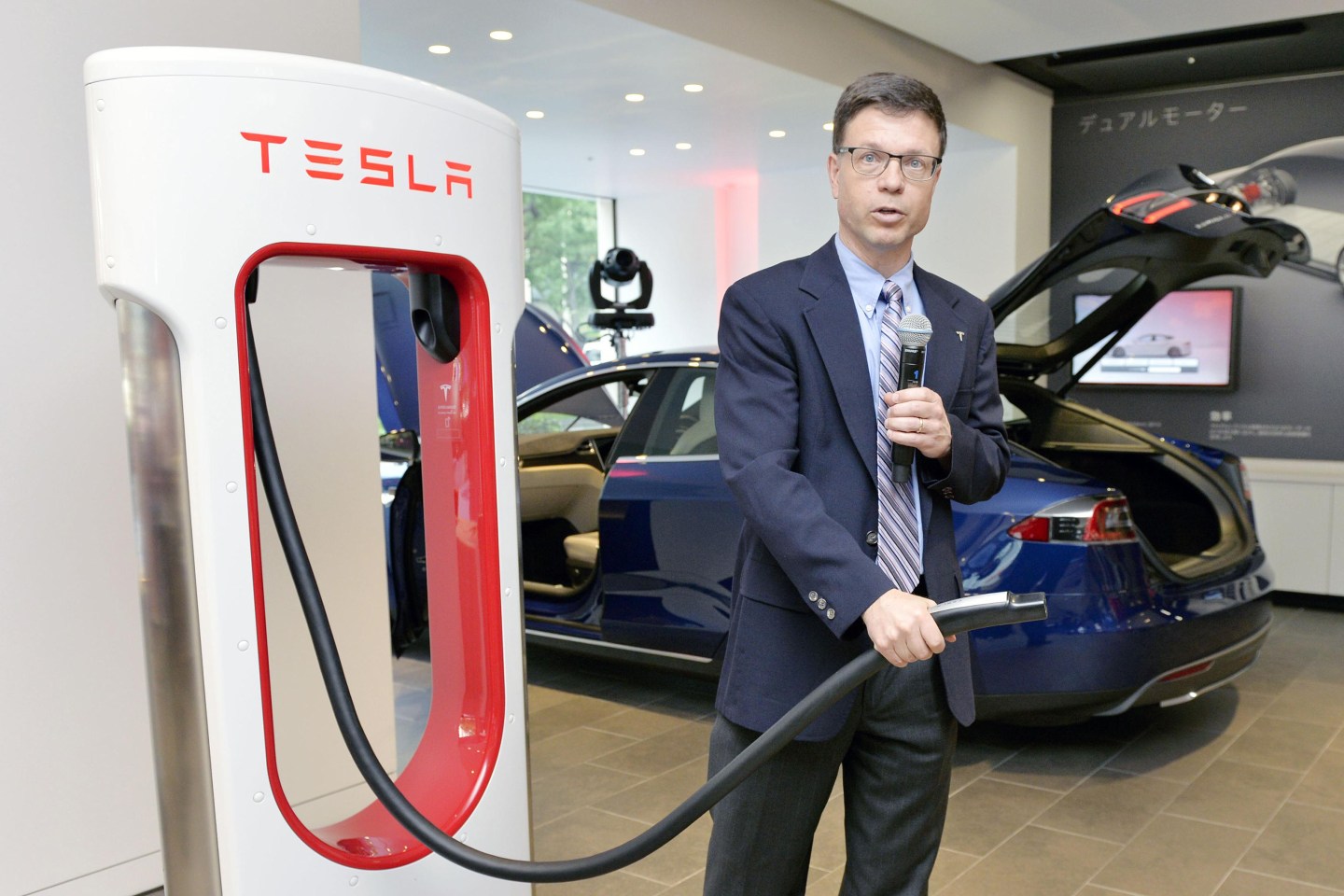A key executive who led the battery cell team at Tesla for more than a decade has left just as the company begins to ramp production of the Model 3 electric vehicle.
Kurt Kelty was director of battery technology at Tesla since 2006. His departure leaves CEO Elon Musk to fill a critical position at the electric automaker, Bloomberg reported. Kelty was valuable not only because he oversaw the one component that is a cornerstone to the electric automaker; He also led negotiations between Tesla and Panasonic to form a partnership to develop batteries together at a massive factory near Reno, Nevada.
Tesla confirmed Kelty left the company to “explore new opportunities,” a spokesman said in an email. Kelty’s responsibilities will be distributed among Tesla’s existing teams, the spokesman said.
The gigafactory, as Tesla calls it, started producing its 2170 cell, a cylindrical battery designed and engineered with Panasonic, in January. The initial batteries that were produced batteries were used in Tesla’s energy storage products, the Powerwall 2 and Powerpack. The Powerwall 2 is a battery for homes designed to store energy generated by solar panels. The gigafactory, which will be the largest building on the planet when it’s complete, has since started making lithium-ion battery packs for the Model 3 electric vehicle.
These battery packs are expected to reduce the per-kilowatt-hour cost of its battery by more than 30%, which, in turn, allows the company to make a mass-market electric car 50% cheaper than its luxury Model S.
A “severe production shortfall” of 100 kilowatt-hour battery packs, which are used in the company’s luxury Model S, led to fewer vehicle deliveries in the second quarter, Tesla reported last month. The company was still able to hit the low end of its goal of delivering more than 47,000 vehicles in the first half of 2017.
An ample supply of battery packs will be crucial as Tesla goes from producing 100 Model 3 vehicles in August to 20,000 in December.
Updated: 6:20 p.m.: Added confirmation from Tesla.












